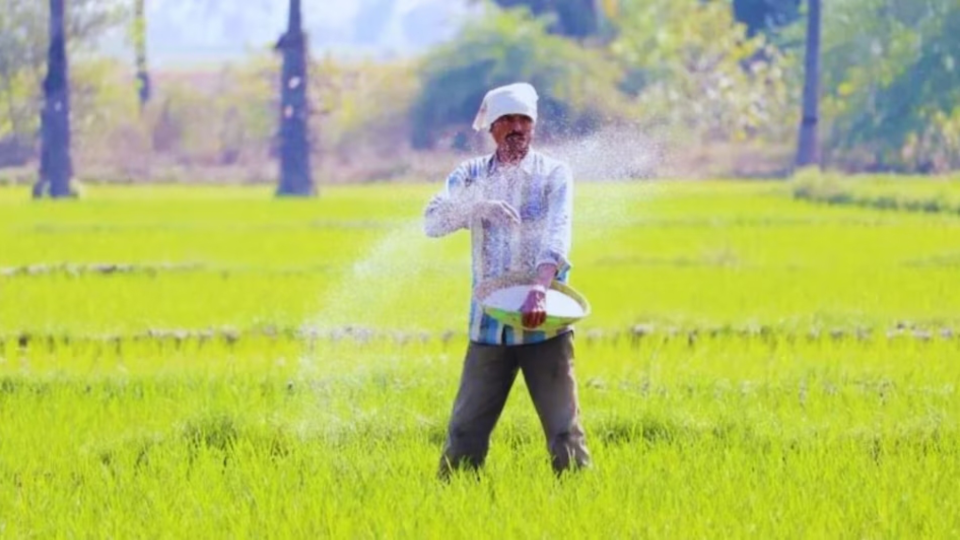India’s food security faces challenges despite being a leading food producer. Besides large population poverty, inefficient food distribution systems, and climate change disrupt food availability and access. While addressing these issues on priority, the National Mission on Natural Farming (NMNF) is promoting chemical-free and sustainable agricultural practices. To ensure food security for all, the initiative has been launched as a standalone Centrally Sponsored Scheme by the Ministry of Agriculture & Farmers’ Welfare. It aims to minimize the dependence of farmers on external inputs, restore soil health, and enhance biodiversity.
It is primarily encouraging farmers to adopt natural farming methods that utilize locally available resources, thereby minimizing reliance on chemical fertilizers and pesticides. This approach not only reduces input costs but also promotes environmentally sustainable agriculture. Under this, 7.5 lakh hectares of area have been covered to develop 15,000 clusters. Each comprising at least 50 farmers and spanning 50 hectares located within a single village or across multiple villages under the same gram panchayat. With a total outlay of Rs. 2,481 crores, which includes Rs. 1,584 crores from the Central Government and Rs. 897 crores from state governments, continuing under the 15th Finance Commission.
Natural farming at par with global trends supports innovative and refined techniques to promote sustainability in agriculture. It offers multiple advantages, including improved soil fertility, reduced water usage, and enhanced resilience to climate change. By eliminating chemical inputs, it addresses health concerns related to pesticide residues in food and water. Additionally, these practices can generate employment opportunities, thereby reducing rural migration.
However, this requires a significant behavioral shift among farmers to transition from conventional to natural farming methods. This necessitates extensive capacity building, continuous support, and the creation of institutional frameworks for documenting and disseminating best practices. The efforts to make practicing farmers partners in the promotion strategy, ensure that its adoption will become voluntary and based on the system’s merits.
Thus, this chemical-free farming practice aims to ensure multifacet benefits along with food security, Aligning with global sustainable agriculture trends, natural farming in India has the potential to support long-term food security while preserving ecosystems that ensure sustainable food production for its rapidly growing population.

